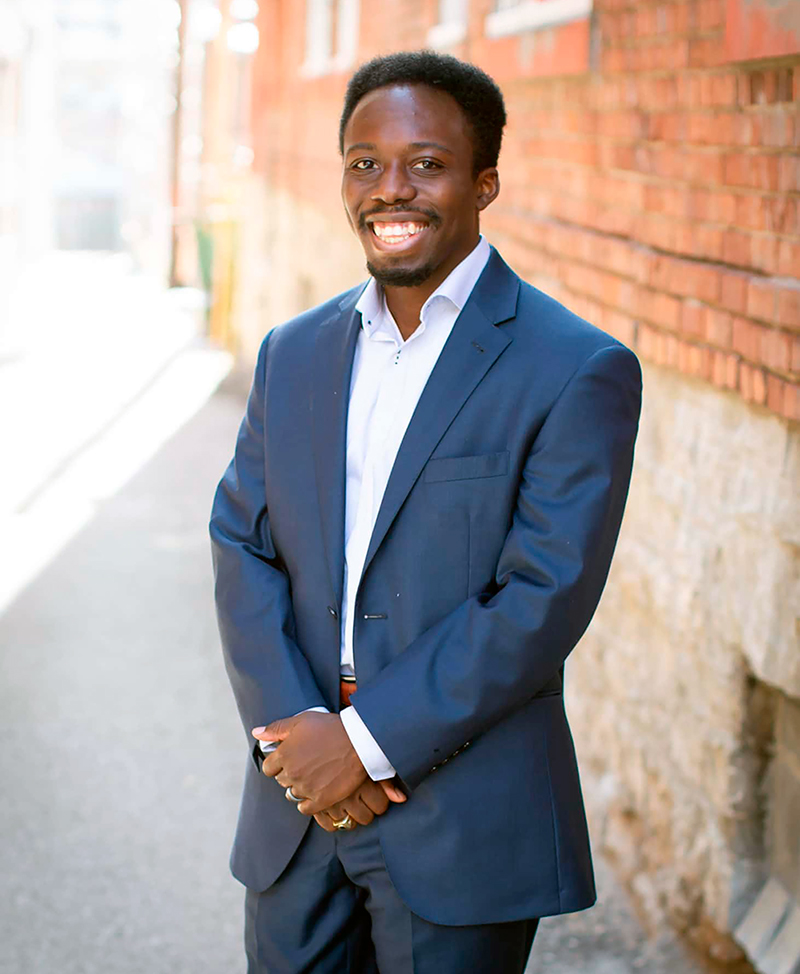Presented by Equity Bank

As the principal percussionist for the Kansas City Symphony, Josh Jones employs much more than the traditional drums, cymbals, and bells prominent in classic music. For contemporary pieces, he can really let ’er rip with gongs or temple blocks or anything he can hit. “However, there is nothing stopping anyone from playing Bach on tuned glass bottles, or monkey wrenches if they have the time and patience to do that sort of project,” he says.
“The most common uses for percussion are to accent emotional moments, climactic or otherwise; represent cultures, characters, or imagery (snare drums often are used as a representation of the military); or, as we are often stereotyped, a background time or groove keeper.” Jones, the author of several books on drumming, sounds like a percussion philosopher. And he just might be.
Growing up in Chicago, Jones studied with the Percussion Scholarship Group, starting in fourth grade, then continued at DePaul School of Music. He has worked with the Pittsburgh Symphony as well as the Calgary Philharmonic Orchestra. A 2020 transplant to Kansas City, Jones is still adjusting to life in a mid-size town. “It is a bit of a culture shock,” he admits. “I’m used to a lot more boutique and local knickknack shops being closer together and more walkable. However, not having to deal with lake-effect snow is very refreshing.” And as to the question of Italian beef or barbecued brisket, Jones takes a detour. “Actually, neither,” he says. “I’m more of a ribs kind of guy.”
For more on Jones’s unique style, visit drummojo.com.
What is the role of a percussionist in the symphony, beyond just keeping a beat?
I like to think of the percussion section as the seasoning, or extra spice of the orchestra. The array of sounds that we offer are incredibly unique and often essential in order to convey the composer’s ideas, vision, or emotional content. Honestly, it’s very rare that we are simply a time keeper, but I can’t keep track of how many times we are tasked with accenting an emotional moment in the piece.
If you were to describe what you do as parts of a sentence (noun, pronoun, verb, punctuation marks, adverb, etc.) what would it/they be?
This might be a cop out, but it really depends on the sentence. However, I think there is one part of the sentence that we are not—a period. I don’t believe that music ever ends, it only pauses. So, if we happen to be a part of the “end” of a sentence, we would be a semicolon.
You’re a percussionist experimenting with the sounds that objects make when you strike them. What would you say are the most interesting percussive sounds from perhaps unusual “instruments?”
That’s really hard. Something I love is when you can get a strange sound from a seemingly common instrument or object, like a garage door. If you hit it right, it’ll sound like thunder or lightning. If you run your thumb or a bouncy ball on a glass table or window, you can make whale sounds. If you’re willing to see past the object’s intended use, you might find a new way of experiencing and appreciating it.
If you could aspire to be a percussionist from any era, any musical genre, who would it be and why?
Jojo Mayer. His philosophical approach to musicality and technique is closest to mine. His existence and experience has influenced the entire percussion and drummer community. I really hope that what I have done and what I am still doing now will have a positive impact on the community that I serve and beyond as well.


